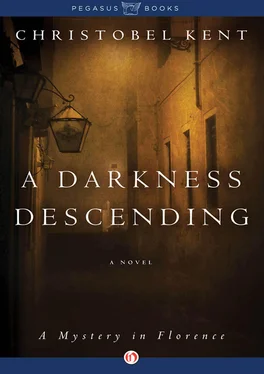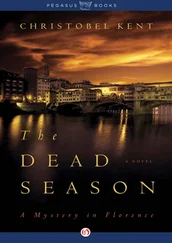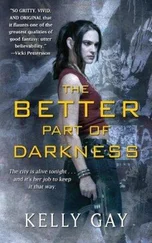Christobel Kent - A Darkness Descending
Здесь есть возможность читать онлайн «Christobel Kent - A Darkness Descending» весь текст электронной книги совершенно бесплатно (целиком полную версию без сокращений). В некоторых случаях можно слушать аудио, скачать через торрент в формате fb2 и присутствует краткое содержание. Год выпуска: 2013, ISBN: 2013, Издательство: Corvus, Жанр: Криминальный детектив, на английском языке. Описание произведения, (предисловие) а так же отзывы посетителей доступны на портале библиотеки ЛибКат.
- Название:A Darkness Descending
- Автор:
- Издательство:Corvus
- Жанр:
- Год:2013
- ISBN:9780857893260
- Рейтинг книги:5 / 5. Голосов: 1
-
Избранное:Добавить в избранное
- Отзывы:
-
Ваша оценка:
- 100
- 1
- 2
- 3
- 4
- 5
A Darkness Descending: краткое содержание, описание и аннотация
Предлагаем к чтению аннотацию, описание, краткое содержание или предисловие (зависит от того, что написал сам автор книги «A Darkness Descending»). Если вы не нашли необходимую информацию о книге — напишите в комментариях, мы постараемся отыскать её.
A Darkness Descending — читать онлайн бесплатно полную книгу (весь текст) целиком
Ниже представлен текст книги, разбитый по страницам. Система сохранения места последней прочитанной страницы, позволяет с удобством читать онлайн бесплатно книгу «A Darkness Descending», без необходимости каждый раз заново искать на чём Вы остановились. Поставьте закладку, и сможете в любой момент перейти на страницу, на которой закончили чтение.
Интервал:
Закладка:
‘Well, of course, the marvellous thing is, this should do for his chances.’
Luisa read the report at speed. Niccolo Rosselli: she knew his mother, who was fifteen years older than Luisa. Her mother had known Rosselli’s grandmother, in the days when the city had been really a village. As if it were yesterday she could remember the mother and grandmother wheeling the precious child out in his frilled pram. An only child, fussed over and doted on: the father a contadino , the mother from the city, with ideas.
Luisa knew the precious child in the handknitted bonnet had grown up, of course she did, she knew that he had become a teacher, then an agitator, she was aware that this Frazione Verde had something to do with him. She looked at the photograph of the ill-shaven man in thick glasses staring off the page: he had been taken to the Pronto Soccorso of Santa Maria Nuova, she read, but released after tests. Luisa thought of his mother pacing the corridors of the hospital, haranguing nurses; she had always been a forceful woman. She must be seventy-five now. At least.
But there was a wife, wasn’t there? Or partner, was that the term? She frowned back down at the small print, holding it at arm’s length so as to focus. Luisa had glasses but didn’t like to wear them. No mention of a wife: enough. Enough gossip, enough idle speculation. Folding the newspaper, she laid it down with a slap and turned to leave. The barman lifted his head to follow her progress across the small, crowded space, and she inclined her head just a little in acknowledgement.
The woman who had talked about drugs Luisa did not acknowledge, although her face was less than twenty centimetres from Luisa’s and staring openly as she turned. Luisa let her eyes slide over the woman’s handsome, arrogant features — younger than me, she registered, and stupid — and without bothering to look at the woman’s interlocutor, she turned her back.
She stepped out through the door into the fresh, cool, September morning that smelled of woodsmoke and chrysanthemums from the flower stalls, took a deep breath and held it.
One problem at a time: and she had the uncomfortable feeling that here was another.
Chapter Four
The market stalls were crowded around the southern end of the Piazza Santo Spirito, and under the statue of Cosimo Ridolfi was slumped the emaciated figure of Stefano the resident drunk, oblivious as always to Ridolfi’s agrarian reforms or his sad, resigned gaze into the middle distance. Stefano raised his head and mumbled as they passed: the words were indistinguishable but from the way his faded eyes brightened as they lit on her, he knew Giuli. Sandro took her arm.
‘It’s all right,’ said Giuli, wriggling in his grasp. They came past trestles laden with second-hand clothes, off which rose the stale smell of closeted apartments, mothballs and unwashed bodies. The customers were a surprising mix: scavengers picking through the stuff and grumbling to each other, some old women but men too, and a girl with dyed orange hair.
‘So the lawyer’s a Santo Spirito type too, is he?’ said Sandro, for something to say. He wasn’t looking forward to this encounter: perhaps it was his years in the police, perhaps it was being Italian, or just human, but he’d never met a lawyer he liked. Two years back he’d been employed by one, a so-called human rights lawyer who turned out to be one of the least moral men Sandro had ever encountered. And Sandro’s whole working life had been spent among criminals.
Giuli nodded to the far end of the square, where the soft pale stucco of the church rose, undefiled and lovely in spite of it all, to meet them. ‘Just round the corner,’ she said. ‘Off the Via Maggio.’ They escaped the stalls and walked around under the steep and beautiful facade of the Palazzo Guadagni, under restoration and not before time.
There was Liliana on the vegetable stall, arms folded across her sweatshirt, chatting to a nun in the grey habit of the Franciscan mission in the Piazza del Carmine. Married for thirty years to a useless drunken husband but silently heartbroken all the same when he died, standing in the marketplace six hours a days, six days a week, all year round, Liliana couldn’t in theory have much in common with an eighty-year-old nun who’d spent her life cloistered away from men and the world. But to Sandro there was something almost identical in their faces, although he couldn’t identify it. Not happiness, exactly, not resignation: their eyes as they talked, peaceably exchanging opinions on who knew what, seemed separately to be fixed somewhere far off, contemplating something invisible. Perhaps God, for the nun, or heaven.
Did Liliana believe in heaven? Did he?
‘Liliana was backing Niccolo,’ said Giuli out of the blue, watching him. He stopped.
‘Really?’ So Liliana wasn’t waiting for the afterlife for justice, then. ‘She was at the meeting?’
Giuli nodded, a guardedness in her expression that he couldn’t quite identify. For a moment Sandro felt a twinge of something, almost guilt, mixed with envy. Everyone who was anyone, it seemed, had been at this meeting.
‘Well, Liliana’s no fool.’ He mused on this fact. Giuli folded her arms across her chest. She did seem better: outside was always better, with Giuli. She was still sometimes like a feral cat, turning around and around in any confined space, looking for an exit.
‘Were they all right about it, at the Women’s Centre?’ he ventured cautiously.
She eyed him. ‘They understood,’ she said. ‘They’re behind him, all the way. The Centre’s funding’s been slashed, you know that? Half of us are volunteers, they’re even asking the doctors to work free a day a week.’
Sandro, who had not known, nodded. He was perturbed by the news. They were a bunch of tough cookies at the Women’s Centre and no mistake; ballbreaking, chainsmoking women doctors, most of the auxiliary staff ex-cons on community service, he always felt they were somehow eyeing him up for the chop — redundant as a man, as a useful member of society — every time he went in there to pay a call on Giuli, but there was something about the place nevertheless. He’d seen them sitting on the plastic chairs, pacing the corridors, women turning up there ready to top themselves because they were pregnant again or sick again or had been punched unconscious by a punter again. The doctors with their nicotine-stained fingers patched them up and got them back out there again. Short-term measures, maybe — but Sandro knew, and Giuli better than most, that for some people, short term was all there was. Better than no term at all.
It was beginning to dawn on him, how much was vested in this man.
‘They live over there,’ said Giuli, breaking in on his thoughts. ‘Rosselli lives over there.’
He followed the nod of her head across the square through the feathery canopy of elm leaves: the western side was the humblest: three- and four-storey houses, plain, modestly pretty stucco frontages, no cut-stone corners or window surrounds, shallow eaves. ‘That one,’ she said. ‘Next to the restaurant on the corner.’
The shutters to the apartment she was indicating were all closed.
They could just knock on the door, they both knew that. But they both knew, too, that even if it was the thing the journalists or the lobbyists or even the police might do, they couldn’t do it themselves. They knew too well how it would be behind those closed shutters, the distress, the anxiety, the dark.
Back in the office, without thinking too hard about it, Sandro had asked Giuli if she knew where Rosselli lived. His unspoken thought had been that they could just go round and ask — what? How things were? What was wrong? Could they help? Because all that had happened as far as they knew was the poor man had been taken ill. But even as Sandro had found himself frowning at the white-faced, tight-lipped little shake of the head Giuli had given him in response, he’d understood that it wasn’t going to be that easy. And Rosselli hadn’t collapsed at home, but in front of an audience, at a crucial point in a controversial career. It had given Sandro a chill to think that Giuli’s unease about the whole situation might be well founded: could it really be a coincidence? Could it be so easy to bring a man down?
Читать дальшеИнтервал:
Закладка:
Похожие книги на «A Darkness Descending»
Представляем Вашему вниманию похожие книги на «A Darkness Descending» списком для выбора. Мы отобрали схожую по названию и смыслу литературу в надежде предоставить читателям больше вариантов отыскать новые, интересные, ещё непрочитанные произведения.
Обсуждение, отзывы о книге «A Darkness Descending» и просто собственные мнения читателей. Оставьте ваши комментарии, напишите, что Вы думаете о произведении, его смысле или главных героях. Укажите что конкретно понравилось, а что нет, и почему Вы так считаете.












